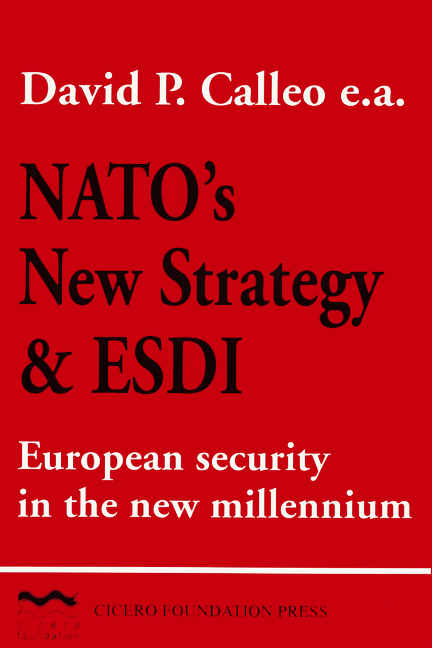NATO’s New Strategy & ESDI
European security in the new millennium
In April 1999 NATO celebrated its fiftieth anniversary. Fifty years of close transatlantic cooperation is certainly a good reason for festivities and many will use the occasion to congratulate the quinquagenarian organization with its undeniable success. One might remember that shortly after the dissolution of the Warsaw Pact and the demise of the Soviet Union, some commentators declared NATO to be obsolete. But seven years later NATO is more alive than ever. The organization looks like a juggler, doing an impossible balancing act, trying to keep five or more balls at a time in the air: managing peace operations in Bosnia and Kosovo, enlarging its membership to new countries, giving the Europeans a larger role, establishing a delicate, still vulnerable, relationship with Russia, and at the same time reviewing – for the second time in eight years – its strategic concept.
NATO’s Strategic Concept has to be adapted to the realities of the modern world. The emphasis will shift from territorial defence to NATO’s ‘out of area’ peace missions. The US would like its European allies to take greater responsibilities in new fields, such as the fight against international terrorism and the prevention of the proliferation of weapons of mass destruction. Although Europeans are willing to go ‘out of area’ and play a more active regional role, they are, however, reluctant to become America’s junior partner in policing the world. Likewise there is a very different emphasis on both sides of the ocean in regard to the necessity to obtain a UN or OSCE mandate for NATO-led actions. The US thinks these mandates useful, but not necessary. Europeans tend to be more cautious in this respect. One other question, which is still unanswered, is how the new Strategic Concept will affect the European Security and Defence Identity. Will it enable the European members to more frequently play an independent role, or – on the contrary – will it bring the Europeans progressively more in line with US global strategic interests?
